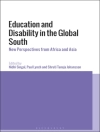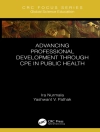Many countries now employ national evaluation systems to demonstrate publicly that universities provide a quality education. However, the current processes of quality evaluation are often detached from the practices of teaching and learning. In particular, those who teach and those who learn still have to be won over to such audit processes.
This book argues that it is time for the higher education sector to concern itself with the human dimension so as to develop both academic professionalism and students’ commitment to their learning. Based on five completed research projects, which explore academics’ and students’ experiences and their views of quality evaluation, the book argues that developing the intrinsic values of teaching and learning held by academics and students is key to achieving high quality education.
In this book, the author critically reviews the four most frequently used terms related to current quality evaluation: ‘fitness for purpose’, ‘value for money’, ‘student satisfaction’ and ‘students-as-customers’, and argues for a motivationally intelligent quality approach, emphasising the moral dimension and the intrinsic values of academics and students. The author also outlines an improved quality evaluation system that encourages and increases academics’ and students’ commitment to teaching and learning.
Inhaltsverzeichnis
Acknowledgements; Overview; Reclaiming Quality; Introduction; Fitness for Purpose; Value for Money; Quality is More Than Management; Quality as a Virtue of Professional Practice; Student Empowerment and Transformative Quality; Introduction; Empowerment of the Student; Developing Empowerment; Conclusion; The Gap between Academic and Student Understandings of Quality; Introduction; Background; Gaps between Academic and Student Understandings of Quality; Conclusion; Student Satisfaction and Quality Education: Perspectives of Academics and Students; Introduction; Why Student Satisfaction?; Impact on Institutions; Impact on Students; Student Satisfaction and Quality Education: Cause and Effect; Dimensions of Student Satisfaction; ‘Student Satisfaction’ from Empirical Evidence; Conclusion and Further Thoughts; Developing Student Internal Capability to Learn; Introduction; Internal Capability to Learn; Critical Self-Reflection; Self-Efficacy; Adaptability; Effective Learning Environment; Conclusion; Promoting Trust in Academic Professionalism; Introduction; Professionalism: An Evolving Concept; Dimensions of Academic Professionalism; Subject Specialism versus Interdisciplinarity; Power Relations between Academics and Students; Professional Development Versus Compliance; Clarifying Academics’ Role in Student Learning; Academics’ Motivation Matters; Conclusion; Refining Quality Evaluation for Better Learning and Teaching; Introduction; Overview of Quality Evaluation; Quality Evaluation: Impact and Some Reflection; Responsibility for Academic Standards; Quality Evaluation as a Supportive Mechanism; Conclusion; Developing a Virtue of Professional Practice; Achieving Improvement; Effective Learning; Final Comments; References.












